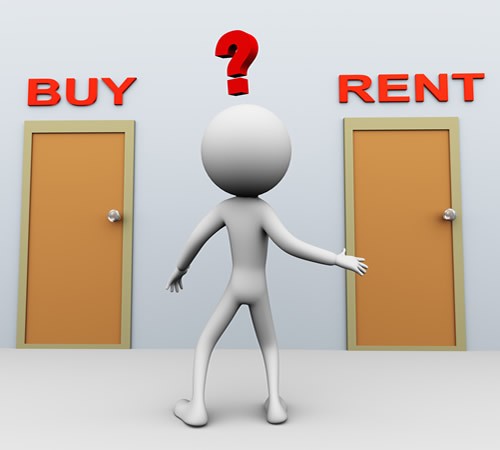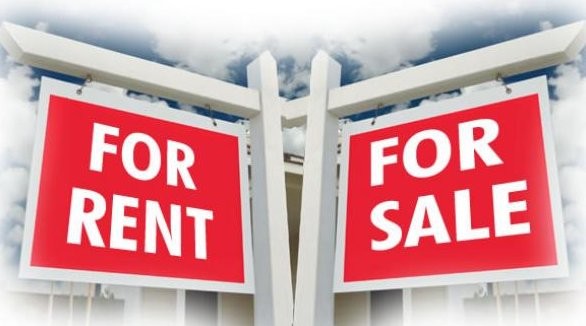Is it better to buy or rent a home
Post on: 16 Март, 2015 No Comment

EvaRosenberg
Despite the fact that home mortgage interest rates are near record lows, only 65.4% of Americans own homes, according the U.S. Census Bureau’s 2012 report. (See Homeownership Rates by State: 1984 to 2012 ) In fact, home ownership in the U.S. is at its lowest level since 2004, when 69% of Americans owned homes.
Of course, home ownership can eat up not only your free time, but your money as well. Is the American dream worth the hassle? To find out, let’s look at it from three angles: taxes, costs, and quality of life.
Are there still tax benefits to home ownership these days?
Back in the days of 8% mortgage interest rates, you were sure to get a generous mortgage interest deduction on your tax return. Add that to the property taxes, and you’d get a nice tax reduction. But what about today, with average national interest rates at 3.46%, according to Zillow.com? See Current mortgage rates and home loans.
Best of MarketWatch
The U.S. Census Bureau says that median housing costs for 2012 are $185,200. Assuming you put 10% down, your mortgage would be around $166,700. Your monthly payment, including principal and interest, would be under $750. Your interest expense would be around $5,000 a year. And if your property taxes were around 1% of the property value each year, you’d be paying about $1,850 per year. See Median property tax rates by state.
So, you’re looking at a total tax deduction of less than $7,000 a year. Oops! The standard deduction for a married couple filing jointly in 2013 is $12,200. So there’s no tax benefit here. A single person’s standard deduction is $6,100. So the net income reduction is $900. Even in a 25% tax bracket (plus 5% for state), that only saves you about $300.
These costs will enable some more folks to itemize, when taking into account their high state income taxes, charitable donations, and medical or business expenses. But remember, your real benefit is only the itemized deductions you get, in excess of your standard deduction. See Tax planning: Standard Deduction.
Suppose your increase in deductions is $3,000? Using the same tax bracket, that would be worth about $1,000 in tax savings.
Do the financial benefits outweigh renting?
The biggest consideration when deciding whether to rent or own is how much of an increase you will face in your monthly costs?
Since the median U.S. housing price is a close match with prices in Phoenix, let’s use Phoenix as an example. According to the Department of Housing and Urban Development, the average cost to rent a three bedroom home in Phoenix is $1,363.
New real-estate power symbol: water
As water features from giant man-made lakes to artificial waterfalls become more elaborate, homeowners are encountering unexpected headaches. Lauren Schuker Blum on Lunch Break. Photo: Everett Fenton Gidley
No kidding? You could own a home for $700 per month — or rent one for nearly double the cost? Is that really true?
Not quite. When you own a home, you also need to pay for homeowners insurance, all your utilities, as well as maintenance and repairs. Average those costs out over the year, and you could be looking at about $800 a month on top of your mortgage. (After paying routine bills, set aside at least $100 a month for future inevitable repairs.) This means it really costs about $1,500 a month to own that home. Take into account a tax break worth $1,000 per year, and your costs are just slightly higher than renting.
So, it looks like it’s a toss-up, right? Maybe not.
Owning a house for the long term means that you’re building up equity — and improving your credit. Despite the short-term real estate value declines, over the long run, two things could happen: You will pay off your mortgage and the market will climb.

For instance, look at this house on 341 N. Kilkea Dr. in West Hollywood. In the late 1960s, it was purchased for about $20,000; the owners then added a master bedroom and bath. Despite two major market collapses (in the 1980s, when interest rates hit 20%, and in the mid-2000s), this house is now worth $1.7 million according to Realtor.com (link ). True, this example is dramatic — but historically, home values increase over 20 to 50 years.
During that time, you’ll have access to the equity to use toward college and other major life expenditures. You may find yourself refinancing once or twice along the way. Even so, you can always pay down your mortgage faster by adding an extra $100 or so each month, or an extra payment or two a year. This can shave years off your loan — and your interest expenses.
How will it impact your quality of life?
Finally, we come to real meat. Kicking back in your own home. Lounging in your back yard, with the barbecue going, a few good friends over, watching the game on your wireless TV monitor, tossing back a few beers. Truly the American dream. Or…
Do you need to devote every weekend to doing all the yard work and fixing things around the house? Oh sure, you’ve got a gardener. But all he does is mow the lawn, blow the cuttings and leaves around, and dig out your favorite plants to make you crazy. You still have to do the big things — trimming the growing trees and bushes, replanting the bulbs and plants, and fixing the sprinkler heads the gardener’s mower broke.
And of course, there’s the honey-do list. The toilet is running, the faucet is dripping. That little drip, drip, drip you’ve been ignoring is starting to sound like the beating of Edgar Allan Poe’s Tell-Tale Heart. Besides, each drop is running up your water bill. And with over 67% of U.S. states facing drought, water rates are rising. Then there is the painting and roofing to do, as the winds and erratic rains wear away layers of your paint, siding and roof. When you rent, the landlord takes care of that: You can leave for the weekend and forget about it. See Wheat prices may rise due to supply, U.S. drought.
Of course, when you own a home, you may have a community association’s covenants, conditions and restrictions (or CC&Rs) to deal with. You can’t paint your door that color; your Christmas decorations are too bold; your lawn needs tending; too many cars are parked out front. Rules, rules, rules. Things like that don’t seem to matter as much when you’re renting. But when you own, you might get indignant about people telling you what you may and may not do on your own property. Just watch as your attitude changes with home ownership!
Overall, is it a good idea to own a home instead of renting? Certainly. If you’re planning to stay in an area for five years or more, you’ll get lots of benefits — in all the categories. But for folks who have wanderlust or like to move every couple of years, home ownership may be more of a trap than a boon. (Unless, of course, they buy fixer-uppers and flip them every two years, tax-free — but that’s another story.)
Eva Rosenberg is the publisher of TaxMama.com, where tax questions are answered for free. She is the author of several books and e-books, including Small Business Taxes Made Easy, and she teaches tax courses at IRSExams.com and CPELink.














